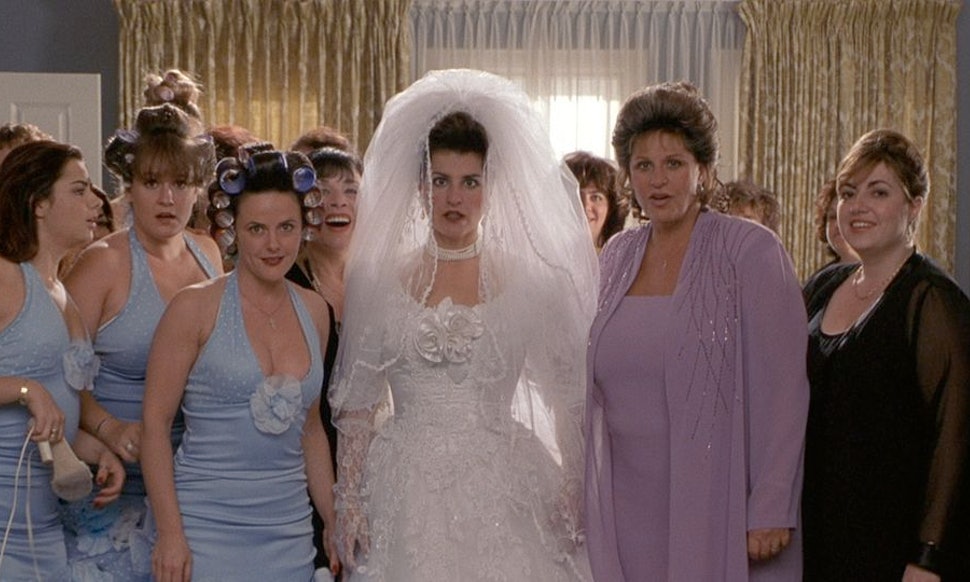By Arrisa Robinson
As I reflect on “Crazy Rich Asians,” (which is FINALLY out in theaters), I can only think of the vast differences between family dynamics in this film versus what we typically see in most romantic comedies. But as I begin thinking more and more about these differences, it occurred to me: does race have that much of an impact on the type of families represented in these films?
Well let’s look into it! For starters, I sat down and binged-watched a bunch of rom-coms on Netflix, starting with “13 Going On 30.” Main character Jenna Rink (Jennifer Garner) had a small family that consisted of a mom, a dad, and herself. Then I moved on to “How to Lose a Guy in 10 Days.” Andie Anderson (Kate Hudson) and Ben Berry (Matthew McConaughey) both came from small households. Andie’s family was barely mentioned, but Ben’s family was made up of a mom, dad, uncle, brother, sister-in-laws, and a couple nieces and nephews. They were standardly nuclear for the most part.
But then I pulled up some of my favorite rom-coms, which consisted of casts who were primarily non-white. I saw mom, dad, sisters, brothers, cousins, aunts, uncles, grandparents, every unnecessary in-law, exes, frenemies, and everything in between. The predominantly black cast of “Guess Who” includes extended family members and friends. Even in “Our Family Wedding,” which features an extensive black and Latino cast, the various players combine to create one gigantic, chaotic family by the end.
But an even bigger epiphany came to mind: where’s the culture? This doesn’t even go for films that involve people of color. As I thought about what these movies had in common, I recognized this lack of culture in a lot of big romantic comedies. Sure, we as Americans have a certain stigma about ourselves but-sorry, not sorry-we’re more than that. We’re comprised of Africans, Chinese, Indians, Irish, Indonesians, Greeks, Pakistanis, Australians and so many more! And they all have their specific values and traditions. Even in films such as “My Big Fat Greek Wedding” or “Polish Wedding,” their family units stand out because of what is culturally acceptable and what we all have in common. It's customary to have an overbearing mother or aunt who cares about who’s marrying who, a host of cousins who intrude on every aspect of your life, or that one aunt and uncle who take their nieces or nephews under their wing like they were their own.
Ultimately, I realized that Hollywood didn’t fail at having more families in its romantic comedies. What Hollywood has failed to do was have more culture. Americans are composed of a staggering amount of races and ethnicities, and it ought to be fair to represent them rather than homogenize them on the big screen. So seeing a film out like “Crazy Rich Asians” openly express how Asian-American culture is represented makes a hell of a difference in Hollywood and in our society. There hasn’t been a primarily Asian cast in theaters since 1993’s “The Joy Luck Club” 25 years ago. So if you were wondering why everyone is emphasizing why representation matters, just remember...25 years. That’s why.
Sure, romantic comedies are supposed to be light and cheery, and by all means, they should continue to be. But here in the great US of A, white people are not the only people in this country. America consists of different shades, cultures, traditions, and values, and they should all be represented and accounted for. Making it to Hollywood is one thing, but Constance Wu, Henry Golding, Awkwafina, America Ferrera, Lance Gross, Zoe Saldana, Lena Olin, and Nia Vardalos all represent the diversity that make America America. Hollywood embracing that is just another step towards getting acquainted with our neighbors, and we have plenty of them. I hope to see more films with more people of color, races, ethnicities, sexualities and genders coming to theaters soon. Because it definitely matters.








